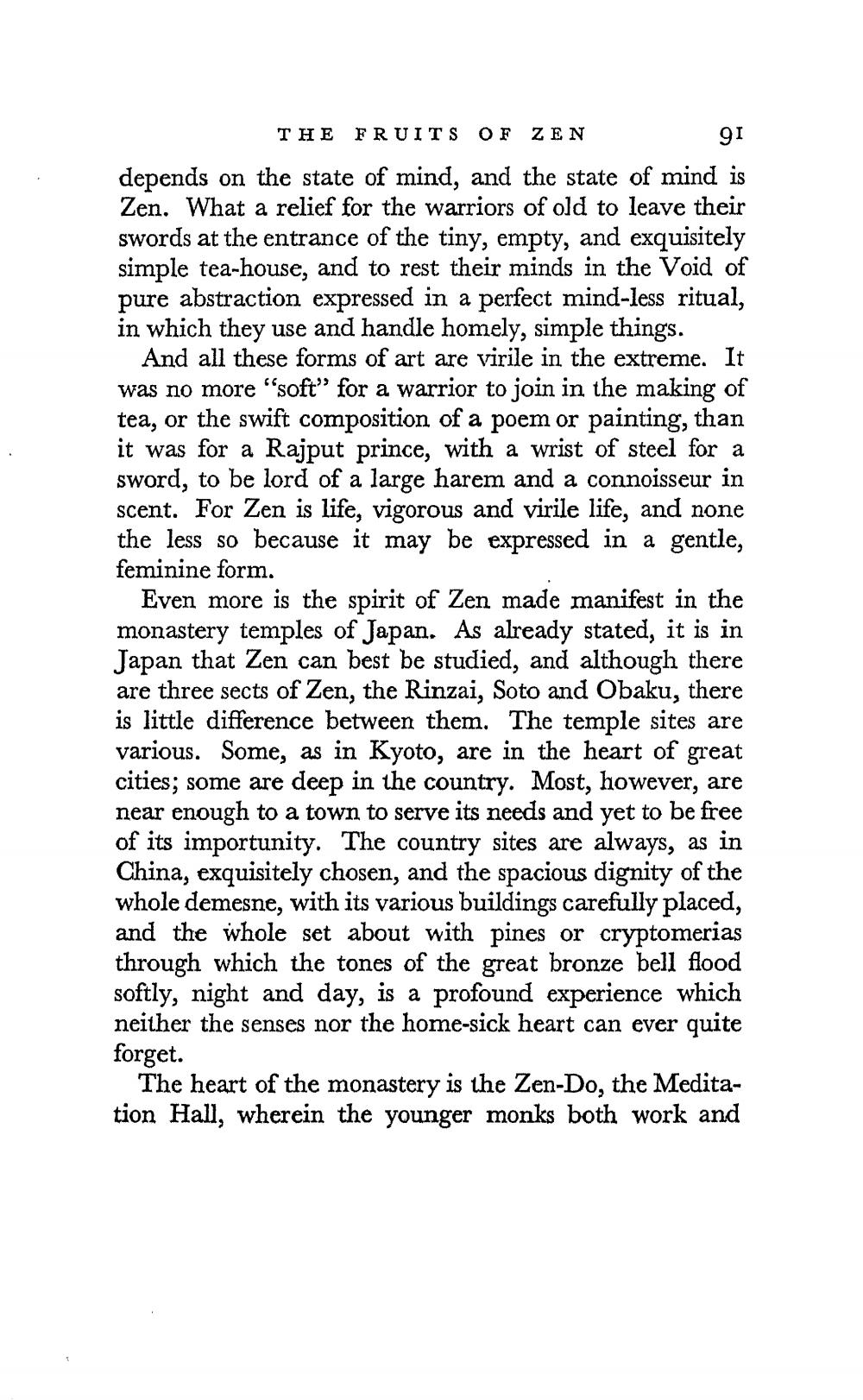________________
91
THE FRUITS OF ZEN depends on the state of mind, and the state of mind is Zen. What a relief for the warriors of old to leave their swords at the entrance of the tiny, empty, and exquisitely simple tea-house, and to rest their minds in the Void of pure abstraction expressed in a perfect mind-less ritual, in which they use and handle homely, simple things.
And all these forms of art are virile in the extreme. It was no more "soft" for a warrior to join in the making of tea, or the swift composition of a poem or painting, than it was for a Rajput prince, with a wrist of steel for a sword, to be lord of a large harem and a connoisseur in scent. For Zen is life, vigorous and virile life, and none the less so because it may be expressed in a gentle, feminine form.
Even more is the spirit of Zen made manifest in the monastery temples of Japan. As already stated, it is in Japan that Zen can best be studied, and although there are three sects of Zen, the Rinzai, Soto and Obaku, there is little difference between them. The temple sites are various. Some, as in Kyoto, are in the heart of great cities; some are deep in the country. Most, however, are near enough to a town to serve its needs and yet to be free of its importunity. The country sites are always, as in China, exquisitely chosen, and the spacious dignity of the whole demesne, with its various buildings carefully placed, and the whole set about with pines or cryptomerias through which the tones of the great bronze bell flood softly, night and day, is a profound experience which neither the senses nor the home-sick heart can ever quite forget.
The heart of the monastery is the Zen-Do, the Meditation Hall, wherein the younger monks both work and




